Prospective students
Geography is a link between natural, social and economic sciences. It is divided into physical geography and human geography. In Bayreuth, geography also has a close connection to African research, which has been a central profile field of the University of Bayreuth for about 30 years. |
|
What does that mean in concrete terms?
Please look at content from past courses:
- Critical logistics in times of COVID-19Hide
-

© chuttersnap (unsplash)
Since March 2020, the public image of logistics has changed. Terms such as "logistics heroes" or "supply chain heroes" highlight the critical, system-relevant role of logistics professionals for globally networked societies.
The aim of the seminar is to take a closer look at "critical logistics". In the main seminar, the focus is on developing an understanding of the historical development of logistics and the spatial, economic and (geo-)political parameters it has set in motion. This is done by examining historical sources and reading central contributions to the critical-geographical debate on logistics. In the exercise for the main seminar, project groups work on various COVID-19-related topics (such as working conditions at Amazon, analysis of supply chains of protective masks, supply chain risk management in the automotive industry). The students work with different quantitative and qualitative methods (especially expert interviews) and present their results with the help of a storymap.
Seminar in the Bachelor's programme in Geography led by Julian Stenmanns
- Economic Geographies of the Anthropocene: The Donut Economy in Theory and PracticeHide
-
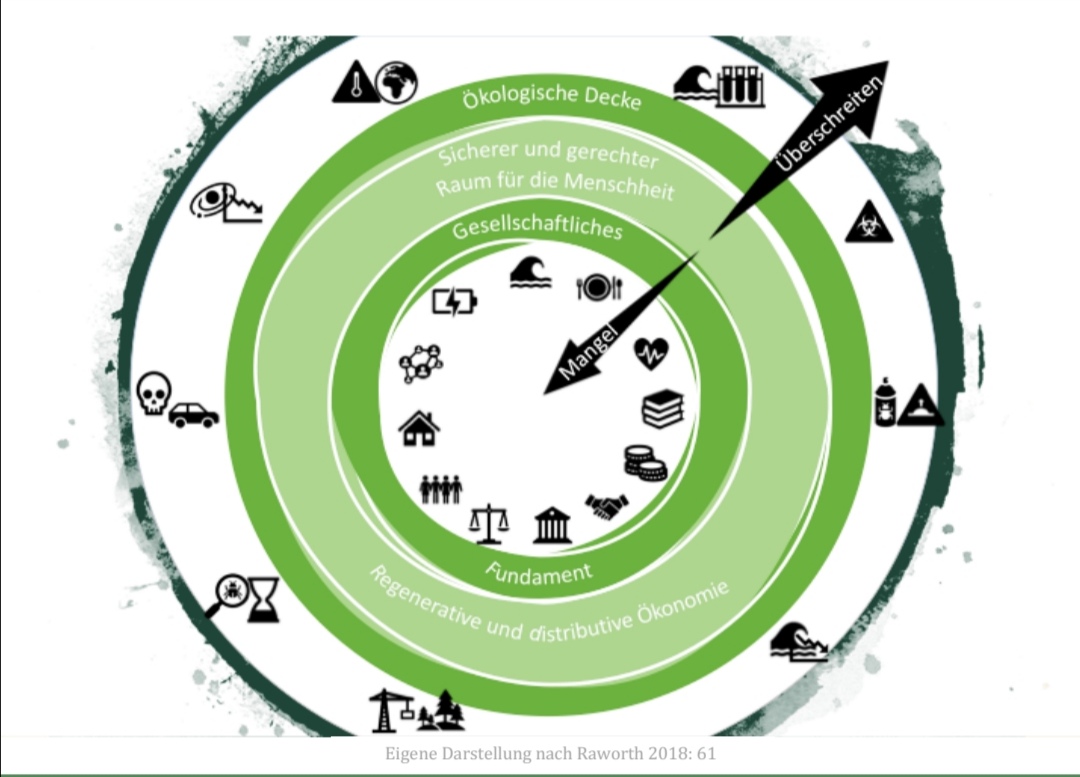
The Anthropocene, with its multiple ecological and social challenges, requires a radical break with established economic mindsets, values, goals, metrics, representational practices, organisational forms, relationships and practices. In her best-selling book "The Donut Economy: Finally, an Economic Model that Doesn't Destroy the Planet" (2018), British economist Kate Raworth explores these questions and provides powerful visual and narrative tools to arrive at an economy that is in harmony with the planet's ecological limits while ensuring the equitable and broad-based satisfaction of (potentially mutable) human needs.
In the seminar we will read this book together and critically mirror it against a bestseller in economic geography - "Take Back the Economy: An Ethical Guide for Transforming Our Communities" (J.K. Gibson-Graham, Jenny Cartoons, Stephen Healy, 2013). In the associated exercise, we will continue a
project from WS 2019-2020: A critical atlas on food and agriculture in the Bayreuth area ("Donut Agriculture").Seminar in the Master's programme in Human Geography led by Stefan Ouma
- Exercise Qualitative Methods: Urban NightlifeHide
-
The overall aim of the course is to develop small research projects (individually or in small groups) on the given topic area (2018: urban nightlife) during the course. Research projects in 2018 were, for example: nocturnal meeting points of speeders, tuners and strollers; hotspots of the city centre by day and by night; graffiti and stickers as means of communication and traces of nocturnal activity.
The two field days will then be used by the research groups to collect initial empirical data in the field (Bayreuth city centre). The motto here is "each one teach one": each research group takes the reins with its respective sub-project for one or two hours during the two research days, while the rest of the participants are involved in the survey (e.g. through guided interviews with night owls, night workers,
police officers, residents of pubs etc., informal conversations e.g. in and in front of bars, subaltern mapping of the city centre at night by various groups of young people, skaters, graffiti sprayers etc.), mental maps of clubbers, observations of nightlife in places like petrol stations, discos, parks, etc.).Methods course in the Bachelor's degree programmes in Geography and GEFA led by Christoph Schemann
- Hiking versus Mountain Biking in Franconian Switzerland: Geographic Conflict Research on the DoorstepHide
-
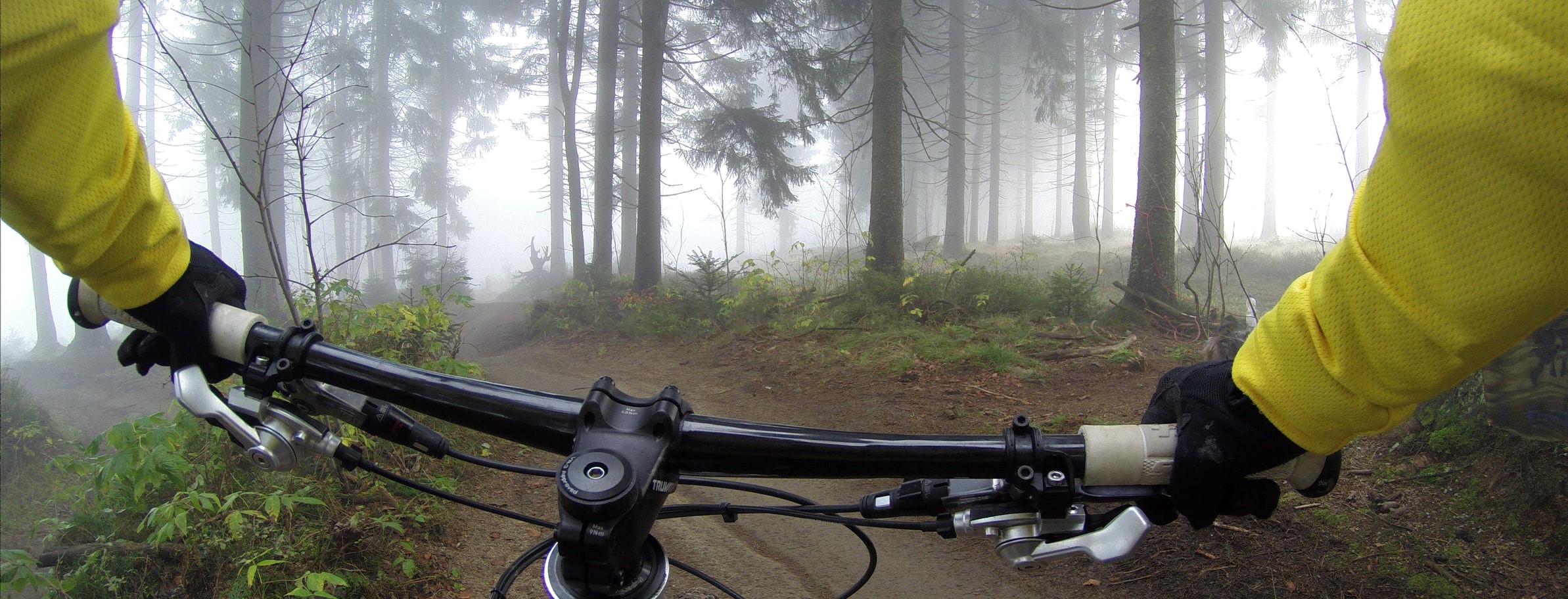
In Franconian Switzerland, too, disputes between recreational athletes are increasing, not least due to the e-bike boom. In the study project "Mountain biking versus hiking. Conflicts in Franconian Switzerland", carried out in 2019 and 2020 by Martin Doevenspeck in cooperation with Michael Breitenfelder from the Wirtschaftsband A9 Fränkische Schweiz, an association for inter-communal cooperation within the framework of integrated rural development: Conflicts in Franconian Switzerland", students explored possibilities of conflict avoidance through the new steering concept "Biking Swing Franconian Switzerland - Veldensteiner Forst" in the sense of consensus-oriented regional development in coordination with relevant stakeholder groups.
Study project in the Master of Human Geography under the direction of Martin Doevenspeck and Michael Breitenfelder
- Tourism and regional development in the Middle Rhine ValleyHide
-
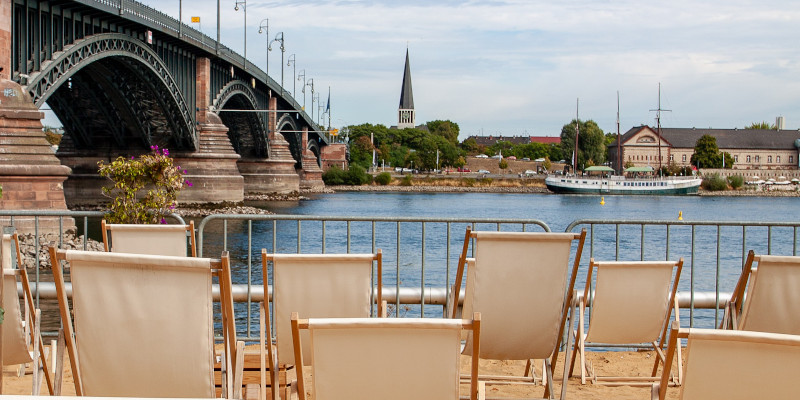
© Jürgen Kreuzer (unsplash)
Today, the Middle Rhine Valley can benefit from its historical background, especially in the area of tourism. To do justice to this focus on tourism, new cycling and hiking trails have been created. A multitude of hotels, restaurants and campsites woo the arriving tourists. On the other hand, the Middle Rhine Valley is today one of the structurally weak regions. In addition, the railway lines on both sides cause considerable noise pollution in the valley. For some time now, there have been proposals to improve the transport infrastructure. One possibility is a fixed crossing of the Rhine between the towns of St. Goar and St. Goarshausen. The currently existing bridges are more than 100 km apart.
In a study prepared, carried out and evaluated by students, potentials and problems of tourism and regional development were considered, especially against the background of a possible bridge construction. This took place in cooperation with various municipal funding organisations and the municipal planning offices (e.g. Office for Urban Development and Building Regulations of the City of Koblenz).
Study project in the Master's programme in Human Geography under the direction of Beate Lohnert
- Konflikte zwischen Mensch und Wild in NamibiaHide
-
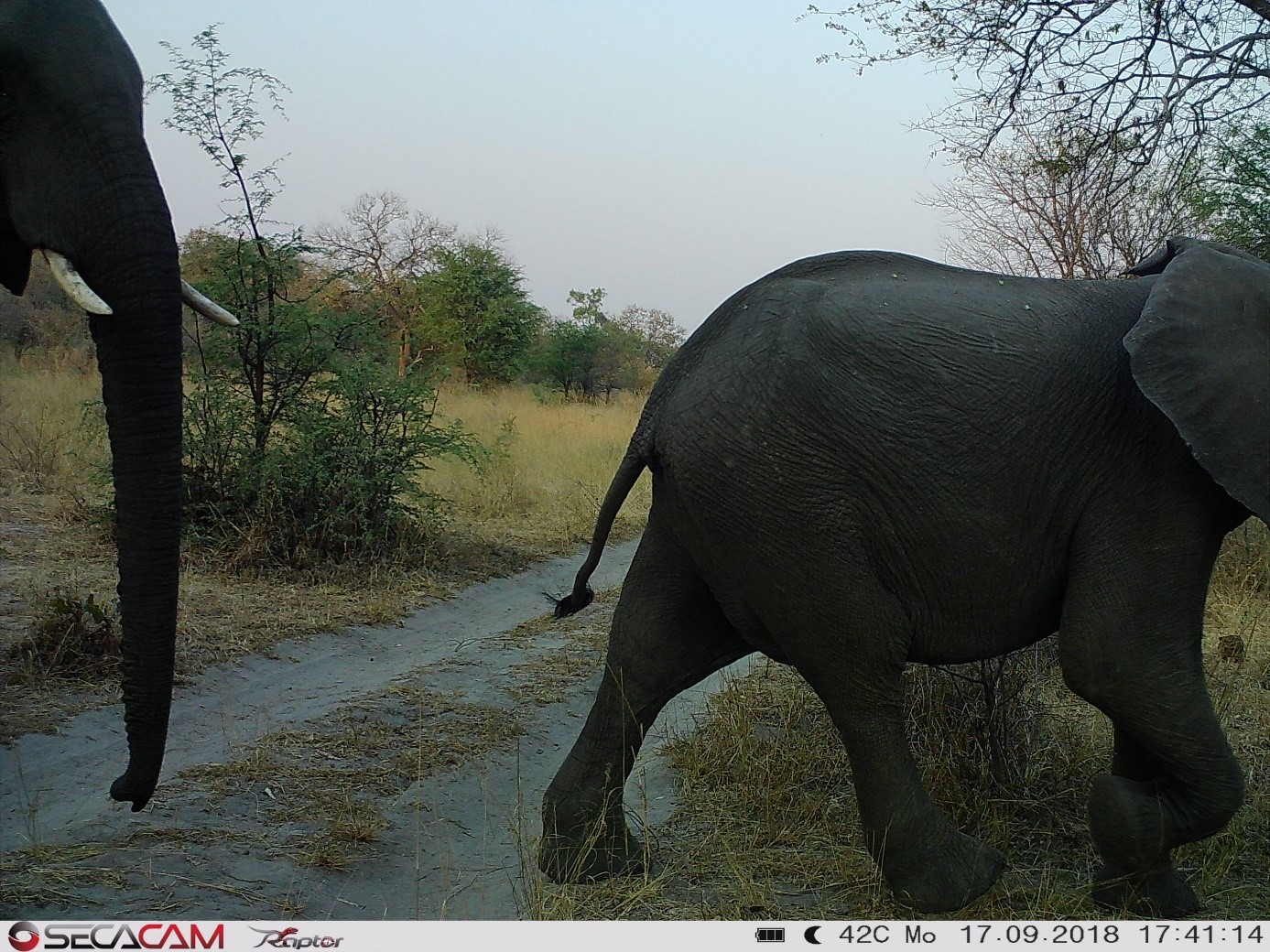
In the course "Research Training", students deal with applied research questions.
In 2018, human-wildlife conflicts were investigated in the Northern Namibian Conservancy Sangwali - a conservation project of the local population - using remote sensing approaches (e.g. the analysis of satellite images), wildlife cameras and other methods.
Course in the Master's programme Environmental Geography under the direction of Cyrus Samimi
- Research Training TadschikistanHide
-
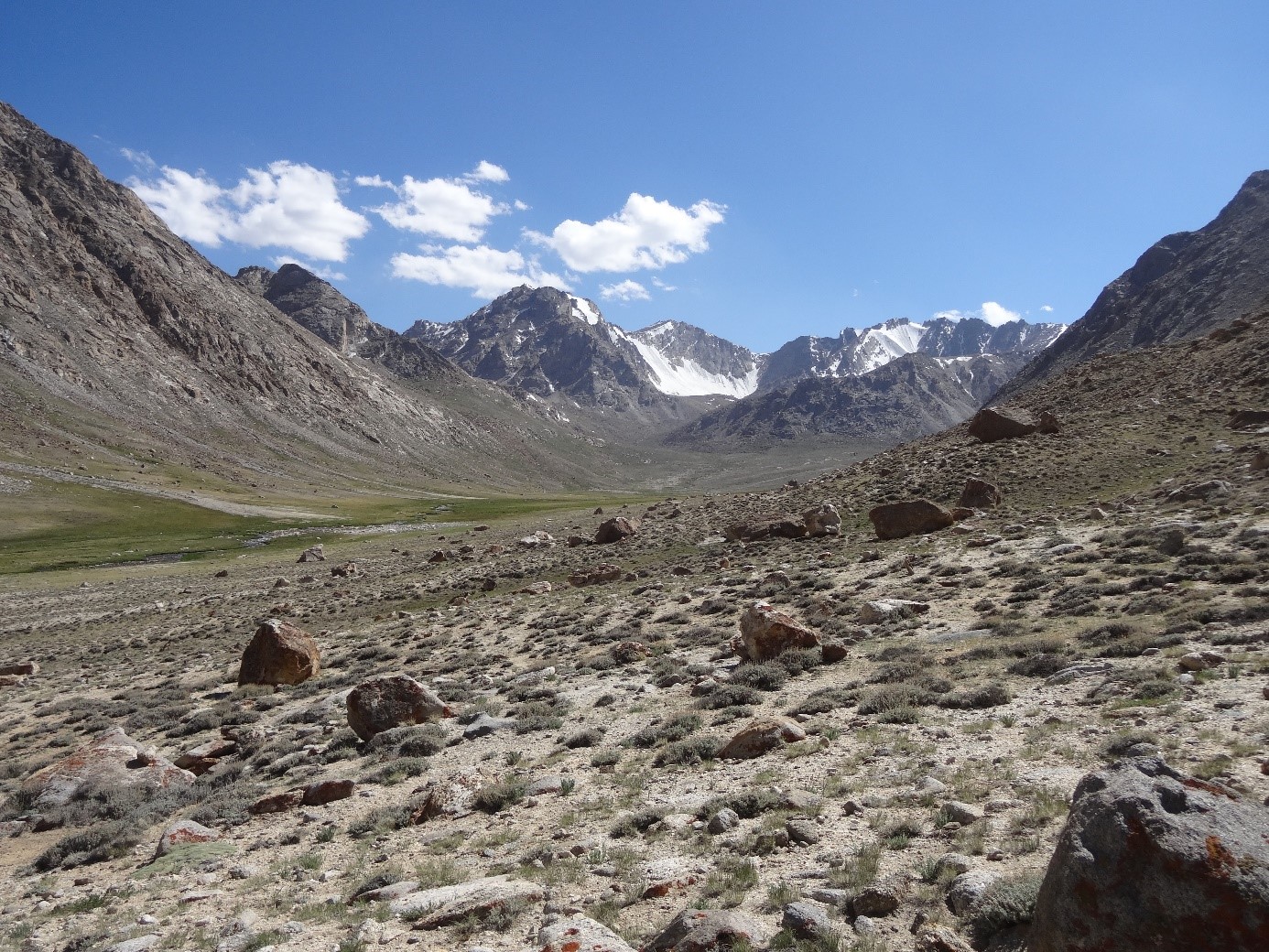
In the course "Research Training", students deal with applied research questions of the working groups in their target regions. In some cases, the course is also combined with the large field exercise or an excursion. This time the location was the high mountain region of the Pamirs in Tajikistan. The high altitude and aridity only allow mobile extensive pasture farming with yaks, goats and sheep, whereby overuse and sustainability issues are important research topics. Therefore, vegetation plots from a previous research project were re-examined to quantify long-term changes. In addition, microclimatic analyses were also carried out with a thermal camera to link vegetation patterns with climate patterns. Practical investigations into urgent local sustainability issues in an exciting region made this course particularly appealing.
Course in the Master Environmental Geography under the direction of Cyrus Samimi
- Science School/Research Training La PalmaHide
-
International School on Biogeographical Research (teaching language English) with participation of external colleagues (Beierkuhnlein, Jentsch, Vetaas, Chiarucci, Field) and students from different countries. The entire process of biogeographical research is simulated and practised, from the development of viable and innovative research hypotheses, the conception of appropriate and feasible field research in this regard, the implementation of data collection in unknown terrain, the evaluation of the data obtained with sophisticated methods, and the condensation of the findings into a manuscript according to the specifications of international journals with high IF. Preparatory phase in the winter semester to generate research hypotheses in small groups (3) with multiple meetings (approx. 4 x 1 hour) and written elaboration followed by a methodological concept and sampling design.
Field phase on La Palma in the following summer semester with one-day introductory excursion and 10 days of field work in small groups for data collection. Evening sessions with experienced Editors-in- Chief of international journals on scientific writing and the formal procedures of the publication process. Follow-up with data analysis, graphing, and preparation of a manuscript for a selected target journal.
Submission of the manuscript to the lecturers by a deadline and review by several referees.Course in the Master's programmes Global Change Ecology and Environmental Geography under the direction of Carl Beierkuhnlein and others
What can I do with it?
Thanks to their interdisciplinary perspective, geographers work in a wide range of professional fields. Our graduates work, for example, in environmental authorities, planning offices, economic development, development cooperation, (inter)national organisations and schools
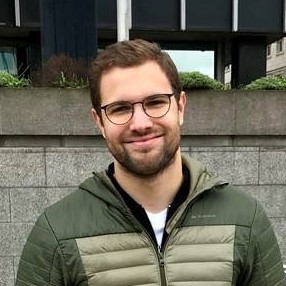
"I have been working as an analyst in the purchasing department of a real estate investor in Frankfurt for a year. There, in addition to commercial calculations, I deal with market, location and property analyses of commercial real estate throughout Germany. A spatial perspective is often helpful in order to understand the countless properties and their markets and locations faster and better."
Adnan Mazgic (Graduation: 2019, in Human Geography - Urban and Regional Research)
What else can I expect?
1. A good supervision
We offer a good supervision ratio with personal and intensive contact to teachers and small groups!
4. An idyllic campus university
The University of Bayreuth is a campus university, which means for you: short distances to the library, PC rooms, refectory and dormitories!
2. No competition for seminar places
Due to the smaller number of students, you usually have a good chance of finding your favourite in elective courses!
5. Affordable housing in Bayreuth
Bayreuth is not a metropolis, but it does offer a relatively good range of housing at reasonable prices and a low cost of living overall.
3. An active student life
The Geosciences building is right next to the "Glashaus", the student-run bicycle workshop "Radbox" and a DHL packing station.
6. Local recreation
When you study in Bayreuth, you are in the direct vicinity of Franconian Switzerland, the Fichtel Mountains and the Franconian Forest, which invite you to go hiking, cycling, bouldering or climbing. Bayreuth is part of the Nuremberg metropolitan region and is connected to it by public transport, so the big city is not far away and is easy and cheap to reach.


